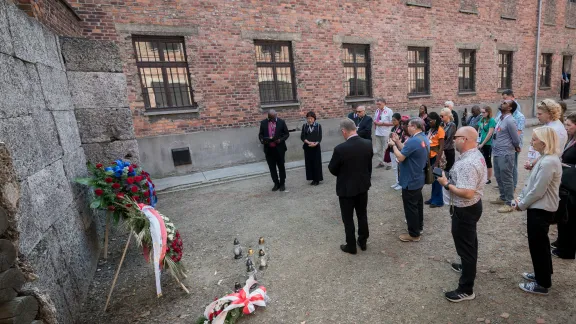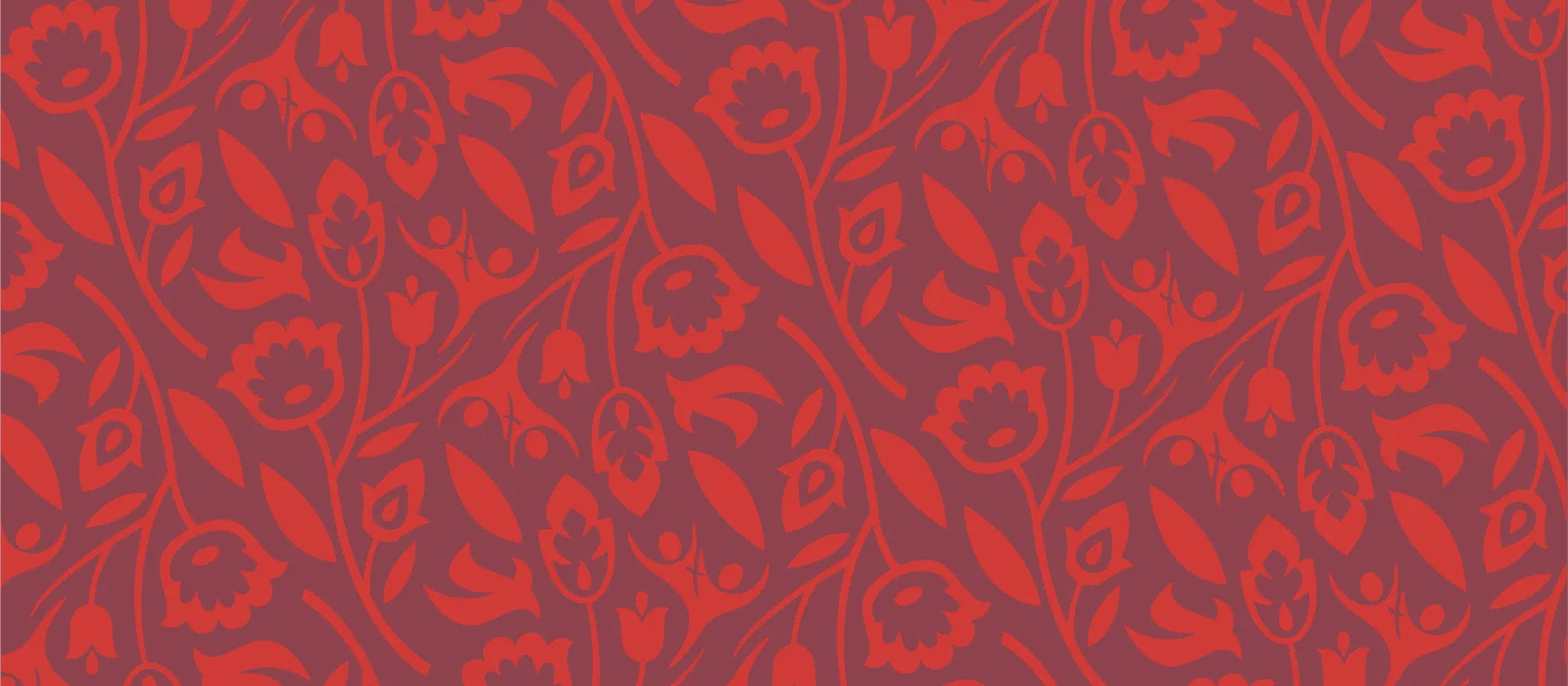LWF leaders lay a wreath as Assembly delegates visit the former Nazi concentration camps
(LWI) - Auschwitz-Birkenau, where over a million people, mainly Jews, were murdered, alongside others deemed dangerous or undesirable by the Nazi regime.
On the third day of The Lutheran World Federation (LWF) Assembly in Krakow, delegates spent the afternoon visiting the memorial and museum in the former concentration camps. In small groups, they walked through the gas chambers, past the ovens where bodies were burnt, seeing piles of human hair, clothes and personal items that were stripped from victims as they were sent to die.
In Auschwitz memorial and museum, in front of a wall where numerous prisoners were shot, LWF President Archbishop Dr Panti Filibus Musa and General Secretary Rev. Dr Anne Burghardt laid a wreath of flowers, accompanied by Bishop Adrian Korczago from the Cieszyn diocese of the Evangelical Church of the Augsburg Confession in Poland, where the camps are located. The two LWF leaders offered a prayer "that we do not remain indifferent,” so that “what we witness here is never repeated.”

LWF President Archbishop Dr Panti Filibus Musa, LWF General Secretary Rev. Dr Anne Burghardt, Presiding Bishop Jerzy Samiec of the Evangelical Church of the Augsburg Confession in Poland, and Bishop Adrian Korczago of the Cieszyn diocese lead participants in a moment of prayer at the Death Wall at the Memorial and Museum Auschwitz-Birkenau as they visit as part of the programme of the LWF Thirteenth Assembly. Photo: LWF/Albin Hillert
How long, O Lord?
“We realize that not everybody is familiar with the history of Europe and the Second World War,” said Korczago, “but we see Auschwitz as a universal symbol of the various tragedies and atrocities that are happening to people all over the world. This is not just something that occurred almost 100 years ago, but something that keeps happening again in different regions of the world.”
At Birkenau, at the end of the visit, delegates walked silently along a ‘prayer path’, marked on the ground by a piece of grey cloth that had been knotted at intervals to resemble the barbed wire that still surrounds the camps. At one point along the path, visitors were invited to use an ink stamp to mark the cloth with the words ‘How long, O Lord?’, the anguished cry of King David recorded in Psalm 13.
At another point, visitors were given dried flowers to crush and scatter on the sandy ground, before joining together to sing a Kyrie, the traditional Christian prayer of lament. In the words of the Psalmist, they prayed: “Out of the depths we cry to you, O Lord. Hear our voice. Hear our speechless cry.”
Out of the depths we cry to you, O Lord. Hear our voice. Hear our speechless cry.
Korczago noted: “For us, the most important message of this visit is to make people reflect on the fact that you cannot stay passive, you cannot be indifferent to the way that people are being tortured and persecuted because of their religion, their gender, or other aspects of their human condition. By witnessing these very drastic images of trauma, torture and death, we hope visitors may reflect on the different types of persecution that go on in the world today.”
The visit to Auschwitz memorial and museum, he said, is an integral part of the LWF Thirteenth Assembly, which is focusing on the theme “One Body, One Spirit, One Hope” [Ephesians 4:4]. “If we are all part of the One Body,” he stressed, “we cannot be insensitive to the suffering of another member or a group of members. The Holy Spirit has the power to move our hearts so that we do not remain indifferent but become clearer in our understanding of the suffering of our sisters and brothers.”
As darkness fell, the last delegates moved away, retracing their steps beside the train tracks that brought so many men, women and children to their deaths. Each group left a lantern beside the place where they had stood to pray, mindful that the following day they would come together again for a moment of shared confession, as the Assembly theme moves from lament for broken bodies into the promise of new hearts. Bishop Korczago concluded: We put our trust in Christ, knowing that hope will prevail - even in the face of such cruelty and malice as represented here at Auschwitz Birkenau.”
